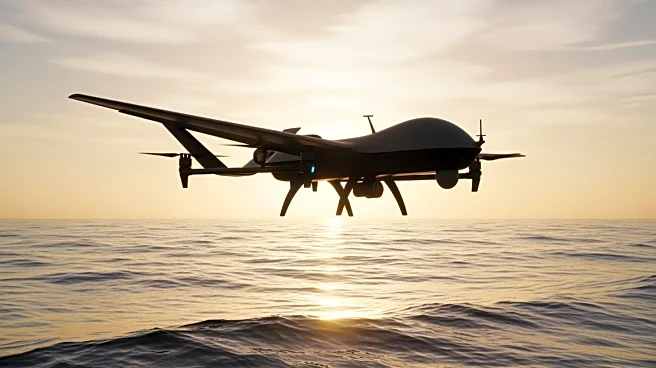What's Happening?
The United States has conducted a test of the MQ-9 Reaper drone at Kadena Air Base in Japan, demonstrating its ability to operate without a traditional runway. This test is part of Project Lima BEAN, which
aims to expand drone operations in the western Pacific and enhance military flexibility. The MQ-9 Reaper, capable of collecting intelligence and conducting airstrikes, is operated remotely and has a range of 1,150 miles. The test involved seamless coordination between local and stateside crews, providing critical data for future contingency operations.
Why It's Important?
The successful test of the MQ-9 Reaper drone near China is significant for U.S. military strategy in the Indo-Pacific region. It demonstrates the ability to operate drones from non-traditional airfields, increasing operational flexibility and rapid global mobility. This capability is crucial for maintaining a strategic presence near China and Taiwan, especially in the context of potential military conflicts. The test reflects the U.S. commitment to innovation and readiness in unmanned operations, reinforcing its deterrence and response capabilities in the region.
What's Next?
The U.S. Air Force may expand Project Lima BEAN to other airfields across the western Pacific, further enhancing the operational flexibility of its drones. This could lead to increased military presence and readiness in the region, potentially influencing geopolitical dynamics and security strategies. The continued development of Agile Combat Employment concepts will likely shape future military operations, emphasizing adaptability and rapid response capabilities. The implications of these advancements may affect U.S. relations with regional allies and adversaries.










